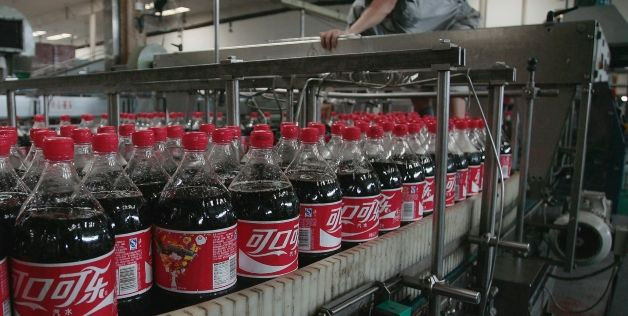Foreign Brands In China Struggle To Translate, While Others Manage To Prosper

What’s in a name? For the world’s top-earning companies, their brand name being at the forefront of the consumers’ minds is everything. In China, foreign brands are in a unique situation trying to propel their brand and name in the new market, all while toying with a different language -- and different laws.
Silicon Valley luxury electric vehicle company Tesla has announced its push for the China market with the announcement of its first retail outlet in Beijing by next year. While China’s growing wealthy population is the perfect market for Tesla Motors, Inc. (NASDAQ: TSLA), a branding trademark issue over the name “Tesla” could be holding them back. In China, “Tesla” is held by a Chinese man named Zhan Baosheng, also registering the web domains tesla.com.cn, teslamotors.com.cn and tesla.cn.
While Tesla and Zhan battle it out over the “Tesla” name in China, some other companies had easier transitions into the Chinese market when it came to localized branding. Coca-Cola for example, is branded in China as “Ke Kou Ke Le,” a homophone for the soda brand, and also perfectly translating in Chinese to mean “tasty cola.” Some other brands also lucked out and were able to find good, phonically-similar words that also translate into something related to the company’s products or services. Viagra, a prescription drug made by Pfizer Inc. (NYSE:PFE) used mostly to treat erectile dysfunction, is sold in China as “wei ge” in Chinese, which means "great brother,"’ an apt euphemism for the help that Viagra provides its users. Goldman Sachs Group Inc. (NYSE:GS), the American investment bank, goes by “gao sheng” in China, which suitably translates to "tall prosperity."
Unlike Tesla, another car company, Land Rover, a British subsidiary of Tata Motors Limited (BOM:500570), has found a fitting Chinese brand name with little trademark hassle. “Lu hu,” which literally translates into ‘road tiger’ is an appropriate name for the military-like sport utility vehicles. In fashion, Bottega Veneta, an Italian brand owned by French group Kering (EPA:KER) that has made a name for itself in the luxury market thanks to its leather goods, voluntarily renamed its Chinese branding from the already established ‘Bao Ti Jia’ ("fine treasure") to the slightly different ‘Bao Die Jia’ because a Chinese businessman took the name ‘Bao Ti Jia’ by applying for a trademark before the fashion house was able to. The same thing happened to French fashion house Hermès International SCA (EPA:RMS), whose Chinese name was nabbed by a local Chinese garment company.
Hugo Boss AG (FRA:BOSS), on the other hand, was able to register its Chinese brand before Chinese trademark “squatters” could get to it first. Hugo Boss has branded itself using just the latter half of the fashion label’s name, using the name “bo shi” in China. The two characters used not only sound similar to Boss’ English brand name but also translates to "scholar," which elicits images of a high-class intellectual.
Luckily for most foreign brands, meaningful Chinese names aren’t necessarily important to Chinese people. Brands like McDonald's and KFC have basically nonsense translations and still find high brand visibility among the Chinese consumer.
© Copyright IBTimes 2024. All rights reserved.






















